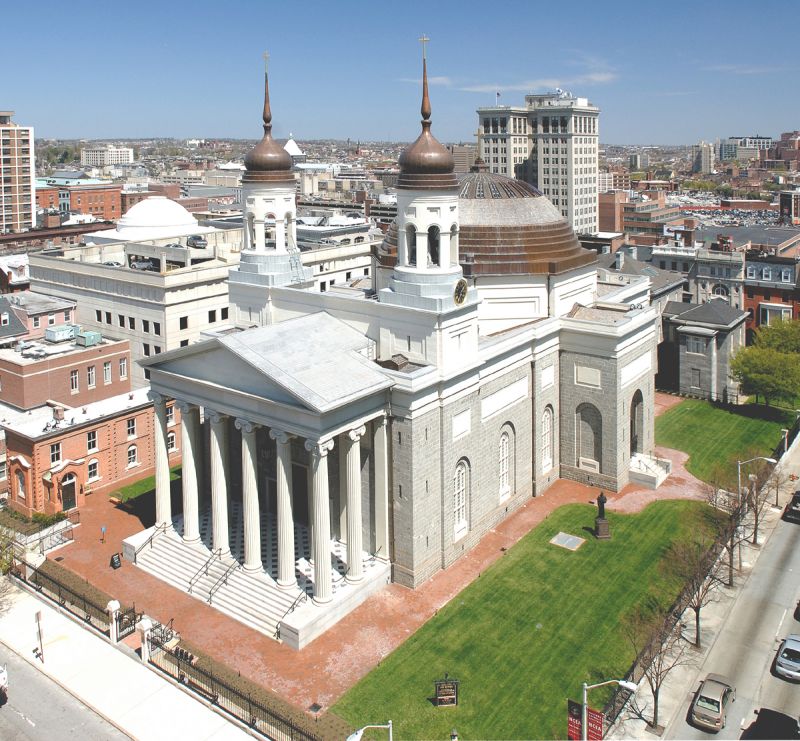
Washington, D.C. Newsroom, May 12, 2023 / 14:40 pm (CNA).
A 17-member commission created by the Archdiocese of Baltimore will investigate the roles that bishops, clergy, and other prominent Catholic figures within the archdiocese played in American slavery.
The commission, which is still in its early stages, includes academics, archivists, and other researchers who are poring through old documents for information on the subject. The commission first met in March and hopes to unveil some of its findings to the public within the fall of this year.
“It’s striking that … Catholics, clergy and lay, are people of their times and accepted the institution of slavery as just part of life in America,” Bishop Bruce Lewandowski, an auxiliary bishop in the archdiocese, told CNA. “It’s very sad to say that.”
Lewandowski said the commission is engaging in “significant research” at the moment and said the goal is to eventually make the history known to the public. Although the means by which they will unveil the information are yet to be decided, he said it could be through articles, presentations, a web page online, or something in document form.
The archdiocese will also use the material for education within churches and schools.
“[We plan to] use it, for example, at the parish level, in Catholic schools, [in the] seminary, [in] education [and] formation so the history is known,” Lewandowski said.
In addition to education, Lewandowski added that the archdiocese intends to “prayerfully reflect” on the information, and the commission will provide recommendations on “atonement and reparations” for the role of the archdiocese in slavery.
“This is part of an ongoing process … of coming to terms with racism in the present by looking deeply in the past,” Lewandowski said.
“We also want to engage the community … [and] evaluate the efficacy of our approaches to systemic racism in the archdiocese,” Lewandowski continued.
The idea for a commission sprang from a working group that developed into a permanent structure in the archdiocese called the Racial Justice Coordinating Council. The group, which interviewed nearly 80 people about their experiences with racism within the archdiocese, provided recommendations on racial justice. At a later date, the council requested a serious study into the archdiocese’s participation in slavery.
“That working group came up with a significant number of recommendations for the archbishop to implement,” Lewandowski said. “And those fell into different categories: education, clergy and seminary formation, the Catholic Center and its internal workings. So, a number of different recommendations.”
Lewandowski added that the participation in slavery is part of the history of the archdiocese, and “we need to continually address it.”
“This is just part of the next phase,” the bishop said.
If you value the news and views Catholic World Report provides, please consider donating to support our efforts. Your contribution will help us continue to make CWR available to all readers worldwide for free, without a subscription. Thank you for your generosity!
Click here for more information on donating to CWR. Click here to sign up for our newsletter.





For me, check the box that says i am sick of hearing about this. Even sicker of being tacitly blamed because I am white. Further I believe the relentless focus on an issue the nation had mostly put behind us is poisoning the nation as a whole. There will always be the handful of nut jobs acting inappropriately, but the rest of us are tired of being unjustly lumped in with them.
I think learning about history is always a good thing but if we only learn about it selectively we get a skewed perspective.
The more you learn about slavery the more you understand that virtually everyone since colonial days had been involved and profiting from it in some way. With the exception of the poor souls who were enslaved. But even some of those once freed then purchased their own slaves.
Were I live free people of colour owned slaves and some owned large plantations.
Mrs. Jefferson Davis is believed to be a descendant of a free person of colour. Toussaint Louverture, a great hero of Haiti, was both a former slave and a slave owner.
History is complicated. As long as we acknowledge the complexities and avoid the political narratives, learning about history is a good and important thing.
A couple days ago I had two opportunities to listen to some really unfortunate comments about folks of African ancestry. One conversation became pretty disturbing. It’s true that we’ve moved forward in civil rights in many ways but we have to also inform people’s hearts and minds.